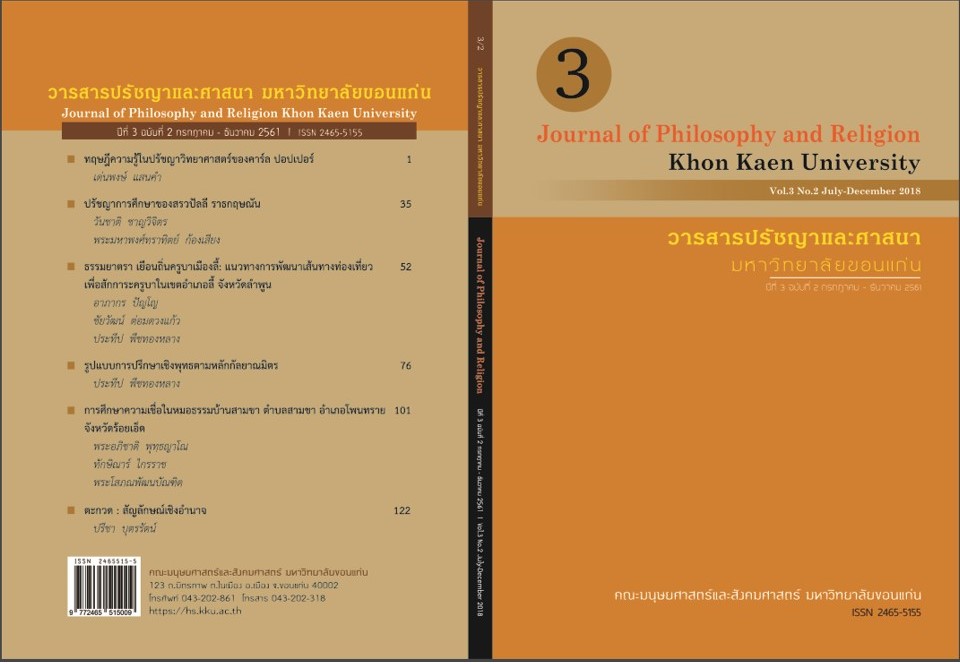Buddhist Counseling Model According to KALYANAMITRA
Main Article Content
Abstract
This study aims to purpose the Buddhist counseling model based on the concept of Kalyanamitra. The research was conducted through the documentary research method and all data were collected from the Tipitaka, commentaries, textbooks and related research work including interviewing the luminaries. The obtained data was analyzed and synthesized and were explained in the form of descriptive presentation. Results elaborated that the Buddhist counseling based on the Kalyanamitra Model consists of four steps: 1) faith development, 2) mental development, 3) wisdom development and 4) peace development. There are 12 guidelines for a consultant and a person who comes to consult: 1) Knowledgeable, 2) Analytic Insight, 3) Leadership, 4) Yearning on volunteering, 5) Advocating ideas, 6) Noble Truth, 7) Ambition, 8) Middle Ways, 9) Insight Development, 10) Thinking Wisely, 11) Right Mindfulness and 12) Abandoning wrong view. The central knowledge gained from the study are of two ideas: 1) Kalyanamitra Model, presenting the 12 guidance for the counselors and one who comes to consult. The model is based on the concept of being Kalyanamitra (being a good friend) that is called Paratoghosa or another’s utterance and Yonisomanasikāra or reasoned attention, and 2) the process of Buddhist counseling based on Kalyanamitra consisting four steps. It is known as the ‘4Sor Model’ presenting: 1) Faith Development, 2) Mental Development, 3) Wisdom Development and 4) Peace Development.


